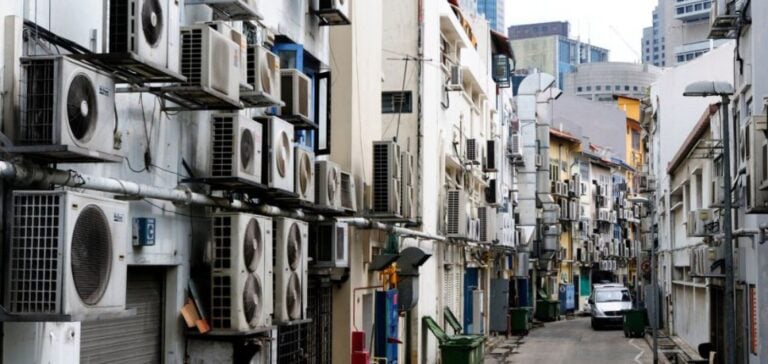Bangladesh, shaken by massive protests and political instability since July, is experiencing a paradoxical situation: while economic activity is disrupted, electricity demand has risen by 7% over a three-week period.
Data from the electricity grid regulator show an average consumption of 316 million kilowatt-hours per day, largely stimulated by rising temperatures that are forcing households to make massive use of air conditioners.
This situation underlines the resilience of the country’s energy demand, even against a backdrop of political crisis.
Growth in residential consumption contrasts sharply with expectations in other developing Asian nations, such as India and Vietnam, where industrial consumption remains the main driver of energy demand.
In Bangladesh, the dynamic is different, with growing household dependency intensifying the use of existing energy infrastructures.
Impact on fossil fuel imports
This increase in residential electricity consumption has a direct impact on fossil fuel imports.
Bangladesh recorded a 26.6% increase in thermal coal imports in the first seven months of the year, reaching 6.22 million metric tons.
Increased use of coal-fired power plants, boosted by falling international coal prices, is the main reason for this increase.
At the same time, imports of liquefied natural gas (LNG), crucial for power generation, grew much more slowly, at a rate of just 2.6%.
This situation reflects a partial substitution of gas by coal in the country’s energy mix, a trend that could become even more pronounced if coal prices remain competitive with those of gas.
Challenges and opportunities for the energy sector
Bangladesh, in the midst of its energy transition, faces a series of complex challenges.
Increased dependence on fossil fuels, particularly coal, could hamper the country’s decarbonization efforts.
In addition, the low share of renewable energies in the energy mix further complicates the situation.
The country will have to reconcile meeting immediate electricity needs with long-term sustainability imperatives.
The outlook for Bangladesh’s energy sector points to continued growth in demand, mainly driven by residential needs.
This dynamic calls for rigorous strategic planning to avoid over-reliance on fossil fuels and to integrate more renewable energy sources, despite current constraints.
Fluctuating commodity prices on international markets will remain a determining factor in the country’s energy stability, with direct impacts on energy costs for consumers.





















